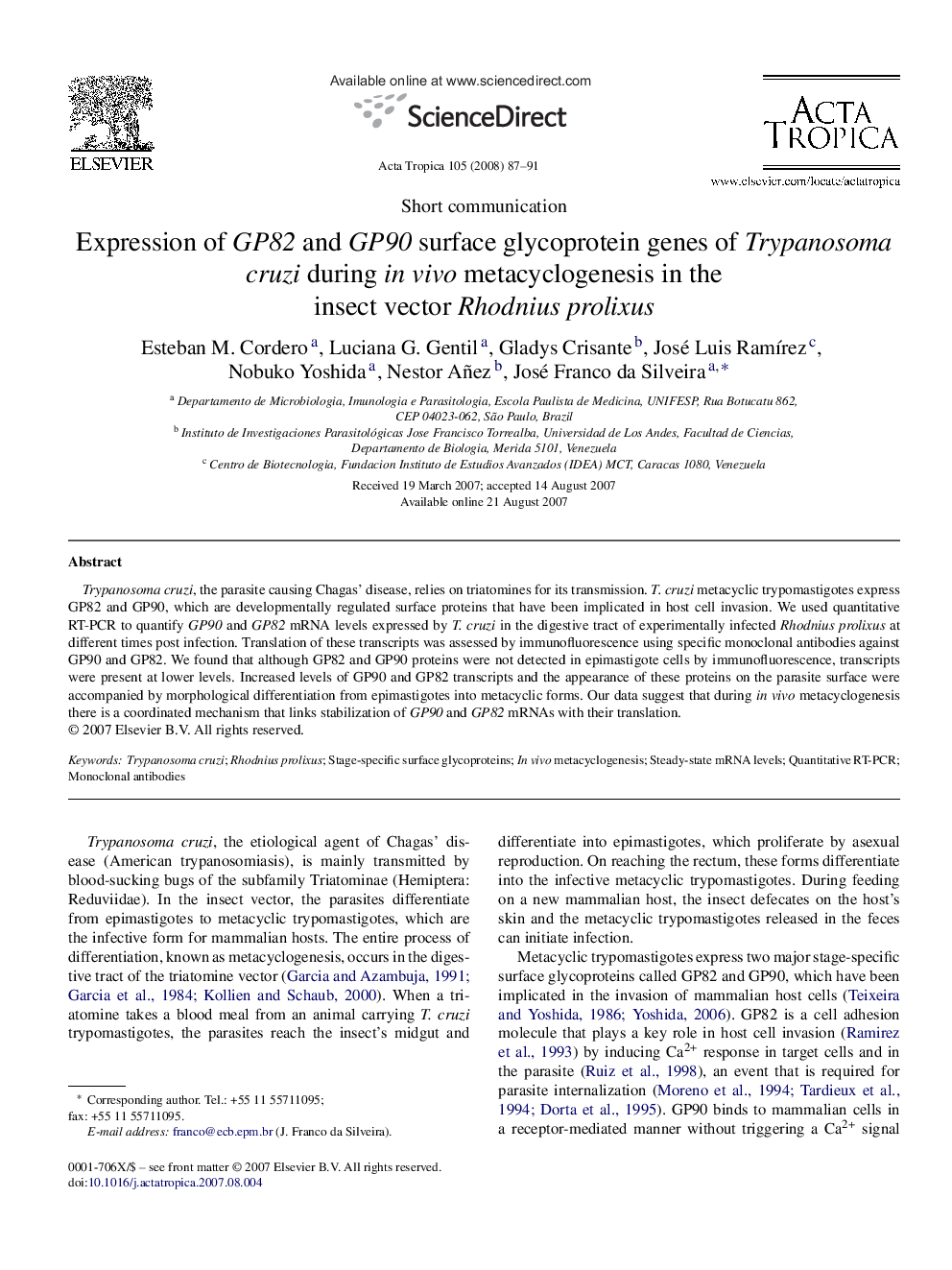| Article ID | Journal | Published Year | Pages | File Type |
|---|---|---|---|---|
| 3394679 | Acta Tropica | 2008 | 5 Pages |
Trypanosoma cruzi, the parasite causing Chagas’ disease, relies on triatomines for its transmission. T. cruzi metacyclic trypomastigotes express GP82 and GP90, which are developmentally regulated surface proteins that have been implicated in host cell invasion. We used quantitative RT-PCR to quantify GP90 and GP82 mRNA levels expressed by T. cruzi in the digestive tract of experimentally infected Rhodnius prolixus at different times post infection. Translation of these transcripts was assessed by immunofluorescence using specific monoclonal antibodies against GP90 and GP82. We found that although GP82 and GP90 proteins were not detected in epimastigote cells by immunofluorescence, transcripts were present at lower levels. Increased levels of GP90 and GP82 transcripts and the appearance of these proteins on the parasite surface were accompanied by morphological differentiation from epimastigotes into metacyclic forms. Our data suggest that during in vivo metacyclogenesis there is a coordinated mechanism that links stabilization of GP90 and GP82 mRNAs with their translation.
